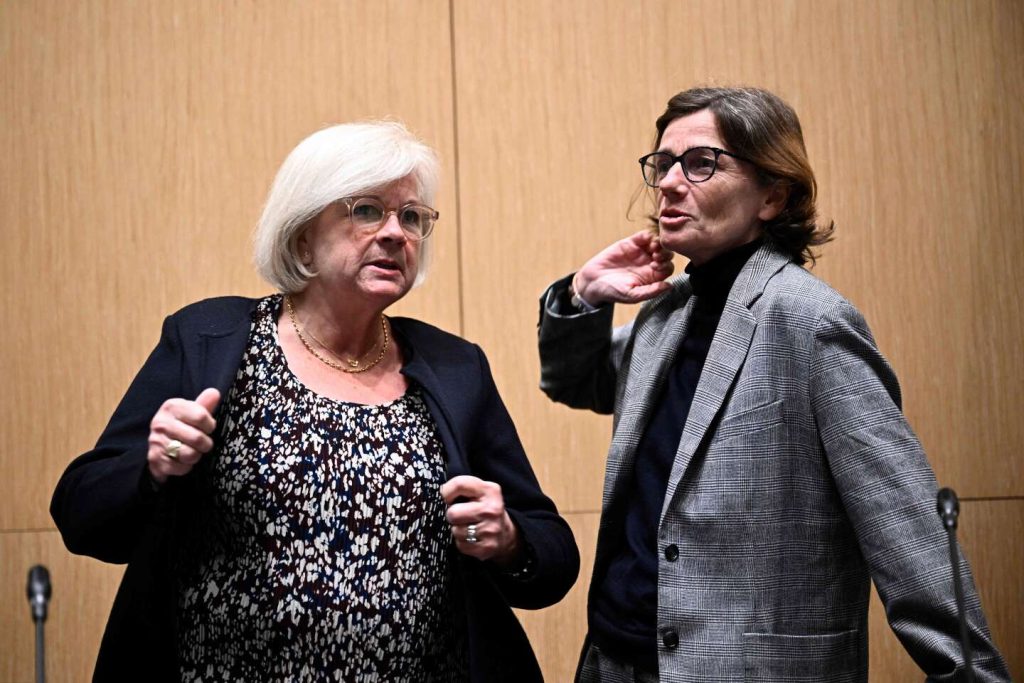The parliamentarians are called upon to debate the proposed end-of-life legislation in a spirit of humanity, attentiveness, and respect, as stated by Minister of Health Catherine Vautrin at the opening of the special commission’s work at the National Assembly on April 22. The aim of the legislation is to address the unbearable suffering of individuals for whom existing laws do not provide adequate solutions, while also seeking to find a balance. The core issue revolves around providing assisted suicide to certain patients, with strict criteria such as being adults who are able to clearly express their will and experiencing intolerable and untreatable physical or psychological suffering with a short to medium-term prognosis. In addition, the legislation emphasizes the development of palliative care and the option of assistance in dying, with clear safeguards and guidelines to protect individuals and healthcare professionals.
The proposed legislation is not a copy of foreign laws, nor is it a model of euthanasia or a permission to commit suicide. It is framed as a possible path with strict conditions that ensure the protection of those involved, as emphasized by Minister Vautrin. The decision to seek assistance in dying is entirely voluntary, and the legislation has been praised for its clarity and precision by the Council of State, aligning with practices in certain European countries. The goal is to increase access to palliative care before introducing the option of assistance in dying, offering a holistic approach to end-of-life care that respects individual autonomy while prioritizing quality of life.
The work of the special commission includes hearing from a variety of stakeholders, including members of the medical community, religious representatives, associations, psychologists, philosophers, sociologists, and experts who have contributed to previous legislation on end-of-life issues. The commission will analyze the proposed articles and any amendments before the legislation is debated in the National Assembly starting on May 27. The discussions are expected to be comprehensive and respectful, reflecting the gravity of the subject matter and the diverse perspectives that exist within society. The importance of taking the necessary time for thorough debate is acknowledged, given the high level of public interest in this legislation.
President of the special commission, Agnès Firmin Le Bodo, anticipates a meaningful and nuanced debate on the proposed legislation, recognizing the significance of the moment and the need to address the complex ethical and practical considerations involved. The aim is to engage in discussions that reflect humility, seriousness, and respect for all viewpoints, recognizing the diversity of beliefs and values within society. Lawmakers are encouraged to approach the debate with care and sensitivity, mindful of the impact their words and decisions will have on individuals facing end-of-life situations. The proposed legislation represents a critical opportunity to address the needs and rights of individuals experiencing extreme suffering while upholding the principles of dignity and autonomy.
As the special commission continues its work towards the parliamentary debate on the end-of-life legislation, there is a sense of anticipation and responsibility among lawmakers to ensure a comprehensive and thoughtful process. The legislation represents a significant step towards providing compassionate and comprehensive end-of-life care, addressing the complex and sensitive issues surrounding assisted dying. By engaging in open and respectful dialogue, lawmakers aim to create a framework that balances the rights of individuals with the ethical and practical considerations involved in end-of-life decision-making. The goal is to establish a legal framework that upholds the principles of autonomy, dignity, and compassion in the context of end-of-life care, reflecting a commitment to addressing the needs of individuals facing terminal illnesses and extreme suffering.


